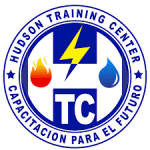In the vibrant state of New Jersey, where bustling cities meet serene shores, a controlled indoor environment is needed.
The Garden State experiences both sweltering summers and icy winters.
The role of HVAC technicians is paramount.
They are there to ensure our homes and offices remain comfortable year-round.
If you’re considering a rewarding profession in New Jersey that combines technical skills with real-world impact, becoming an HVAC technician might be your calling.
Dive deeper to unearth the steps, benefits, and opportunities awaiting in this exciting field.
Go to Page Section:
How to Become – Step by Step:
Understand the Requirements:
- State Licensing: The Garden State mandates that all HVAC technicians obtain a legal license. This licensing process is governed by the New Jersey Division of Consumer Affairs, ensuring technicians are adequately qualified and uphold industry standards.
- Educational Prerequisites: While a college degree isn’t necessary, completing high school or its equivalent is often a starting point; you can apply to colleges when you are 18. Some technical schools also offer courses tailored to HVAC, providing a solid foundation.
- Apprenticeship or Work Experience: Before you can even think of sitting for the state exam, you’ll need to have gained a set number of hours or years under the mentorship of a licensed HVAC technician. This apprenticeship phase is where theoretical knowledge meets practical application.
- Examination: Once the prerequisites are satisfied, aspirants must demonstrate proficiency by passing a state-specific examination. This test delves into various HVAC systems, safety protocols, and regulations peculiar to New Jersey.
New Jersey, with its distinctive seasons and architectural diversity, demands HVAC technicians who are not only skilled but also profoundly familiar with the state’s unique challenges.
Understanding and satisfying these prerequisites guarantees consistency and establishes a practical and durable vocation in the air conditioning industry.
Gain Hands-On Experience:
- In the ever-changing world of HVAC technology, theoretical knowledge alone isn’t enough. Practical, hands-on experience is a fundamental component of becoming a proficient HVAC technician, especially in a diverse state like New Jersey, with its varied climatic demands.
- Apprenticeship: Embarking on an apprenticeship under the guidance of a licensed HVAC technician is a brilliant way to start. This mentorship not only gives you a better look into the complexities of HVAC frameworks but also offers bits of knowledge into the particular requests of New Jersey’s homes and organizations.
- On-the-Job Training: Apart from formal apprenticeships, seeking employment as an HVAC helper or assistant can provide invaluable on-the-job training. This phase helps candidates understand installation, maintenance, and troubleshooting.
- Networking with Professionals: New Jersey boasts a rich community of HVAC professionals. Engaging with this community can provide fresh perspectives, techniques, and best practices adopted in the state. Consider joining local HVAC associations or attending seminars for this purpose.
- Duration: Typically, New Jersey mandates that HVAC technicians accumulate a certain number of hands-on training hours before they’re eligible for licensing. This can range from a few months to several years, depending on the specific training path chosen.
Licenses and Certifications for HVAC Technicians in New Jersey:
Being an HVAC in New Jersey involves understanding the specific license and certification requirements that ensure the technician’s proficiency and the safety of the state’s residents.
In the same way as other states, New Jersey requires HVAC specialists to be certified:
- HVAC/R License: This is the primary license needed to operate as an HVAC technician in New Jersey. The New Jersey Division of Consumer Affairs controls it. Before being eligible for this license, candidates must be 21 years of age and have completed an apprenticeship or gain equivalent work experience and pass a state-specific examination.
- Section 608 Technician Certification: This certification, more commonly known as the EPA 608, is a federal requirement for anyone handling, purchasing, or disposing of refrigerants. There are four types of EPA 608 certifications, each corresponding to different equipment types. For most HVAC technicians in New Jersey, it’s advisable to obtain the Universal Certification, which covers all equipment types.
Other Licenses and Certifications:
While the HVAC/R license and EPA Certificate are the primary requisites, technicians looking to distinguish themselves or specialize often pursue additional certifications.
Licenses should renewed every two years.
- NATE Certification: The North American Technician Excellence (NATE) is a recognized certification for HVAC technicians. It focuses on an individual’s real-world working knowledge of HVAC systems.
- RSES Membership: The Refrigeration Service Engineers Society (RSES) offers various training and certification opportunities, allowing technicians to update their skills and knowledge continually.
HVAC Schools in New Jersey:
- Offers a comprehensive HVAC program.
- Programs are both hands-on training and classroom instruction.
- The program typically lasts for 13 months.
- Tuition details can be obtained directly from the institution.
- The curriculum lasts nine months.
- Day and evening classes
- Tuition fee information is available upon request.
- This course offers an in-depth understanding of HVAC systems.
- Course length is 12 months for daytime classes or 18 months for evening classes.
- For fee details, prospective students should contact the college.
Few other options to consider:
Raritan College
Monmouth County Vocational School
Hudson Training Center.
https://hudsontrainingcenter.com/en/home-2/
| School Name | Address |
|---|---|
| Lincoln Tech, Mahwah | 70 McKee Dr, Mahwah, NJ 07430, United States |
| Pennco Tech, Blackwood | 99 Blenheim-Erial Rd, Blackwood, NJ 08012, United States |
| Eastwick College, Paterson | 634 Market St, Paterson, NJ 07513, United States |
| Raritan College | 118 Lamington Rd, Branchburg, NJ 08876, United States |
| Monmouth County Vocational School | 2 Swartzel Dr, Middletown Township, NJ 07748, United States |
| Hudson Training Center. | 2321 John F. Kennedy Blvd, North Bergen, NJ 07047, United States |
Salary:
In New Jersey, an HVAC technician can expect an enticing salary.
According to the data from salary.com, the average salary for an HVAC technician in New Jersey is approximately $56,868.
Annual Salary Range:| Location | Avg. Annual Salary |
|---|---|
| Newark | $55,502 |
| Jersey City | $57,611 |
| Paterson | $56,532 |
| Elizabeth | $55,502 |
| Edison | $55,012 |
| Woodbridge | $55,012 |
| Lakewood | $54,714 |
| Toms River | $53,887 |
| Hamilton Township | $59,778 |
| Trenton | $53,479 |
Regional Salary in New Jersey
| Region | Employed | Avg. Annual Salary | Avg. Hourly Pay | Top 10% Annual Salary | Bottom 10% Annual Salary |
|---|---|---|---|---|---|
| Atlantic City-Hammonton, NJ | 430 | $63,960 | $30.75 | $89,290 | $44,820 |
| Trenton-Princeton, NJ | 270 | $71,780 | $34.51 | $99,510 | $45,470 |
| Vineland, NJ | 220 | $64,450 | $30.99 | $103,350 | $39,150 |
* Employment conditions in your area may vary.
Frequently Asked Questions
Do I need any prior experience to enroll in an HVAC school in New Jersey?
While it’s advantageous, most HVAC schools in New Jersey offer foundational courses, making it unnecessary to have prior experience.
How often do I need to renew my HVAC license in New Jersey?
In New Jersey, HVAC licenses typically need renewal every two years.
However, always check with the New Jersey Division of Consumer Affairs for the most up-to-date information.
Are there any continuing education requirements for HVAC technicians in New Jersey?
Yes, to renew your license, the state often requires a certain number of continuing education hours.
The exact number can vary, so it’s essential to stay informed.
HVAC Technician Info by State
- Alabama
- Alaska
- Arizona
- Arkansas
- California
- Colorado
- Connecticut
- Delaware
- Florida
- Georgia
- Hawaii
- Idaho
- Illinois
- Indiana
- Iowa
- Kansas
- Kentucky
- Louisiana
- Maine
- Maryland
- Massachusetts
- Michigan
- Minnesota
- Mississippi
- Missouri
- Montana
- Nebraska
- Nevada
- New Hampshire
- New Jersey
- New Mexico
- New York
- North Carolina
- North Dakota
- Ohio
- Oklahoma
- Oregon
- Pennsylvania
- Rhode Island
- South Carolina
- South Dakota
- Tennessee
- Texas
- Utah
- Vermont
- Virginia
- Washington
- West Virginia
- Wisconsin
- Wyoming













